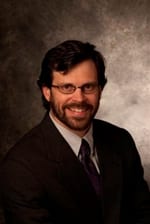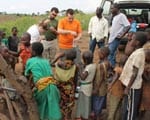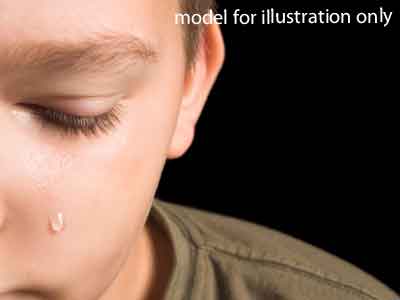The search for solutions to dangerous water quality issues in refugee camps is driving an SMU lab group’s partnership with the United Nations High Commissioner for Refugees. SMU faculty and students will work in the lab and on the ground in Kenya, Uganda, Liberia and Bangladesh.
The group will integrate information from other sources to develop a database that will help UNHCR planners provide safer drinking water in existing and future refugee camps.
Supported by a $270,000 grant from UNHCR and additional SMU funds, faculty member Andrew Quicksall and his graduate students in SMU’s Lyle School of Engineering are collecting water samples in UNHCR camps, bringing samples back to SMU for analysis and also training workers in and around the refugee camps to test water supplies.

Database to identify contaminants in camps with half a million people
The database developed by Quicksall’s group will identify contaminants in drinking water and allow UNHCR officials to track water quality in the camps over time. Some water quality problems are indigenous to the regions where the camps are situated, some develop over time, and some are the nearly instant consequence of thousands of people collecting in unsuitable locations to escape war and famine faster than sanitary infrastructure can be built.
For example, the agreement with UNHCR commits Quicksall’s team to investigate critical water issues in Dadaab, Kenya ̵ home to the largest refugee complex in the world. Nearly half a million people are concentrated in three camps there, many living in makeshift shelters of twigs, reeds and scraps. Refugees pouring across the border to escape war and famine in Somalia continue to face shortages of food, water, shelter and sanitation hazards there.
“The technical challenges of supporting refugee populations of this size will require that our teams stay engaged with the UNHCR for years to come,” said Geoffrey Orsak, dean of the SMU Lyle School of Engineering. “Fortunately, our new Hunt Institute for Engineering and Humanity makes it possible to lead efforts of this magnitude nearly anywhere on the globe.”
Research to investigate solutions to safe but unpalatable drinking water
Some camps have safe drinking water available, but the taste is so off-putting that residents seek out other sources. In Nakivale, Uganda, for example, the high iron content in well water drives refugees to drink surface water that is frequently contaminated with coliform bacteria. Quicksall’s group also will investigate methods of improving the taste of such safe, but unpalatable, drinking water.
Preliminary research results have revealed problematic concentrations of iodide in drinking water at Dadaab and fluoride in both Southern Uganda and Kakukma, Kenya. Some types of contaminants may not create problems short-term, Quicksall explains, but create severe health issues for people over the long term — particularly children and the elderly. His study group will have the opportunity to both recommend and implement remediation methods for those problem water sources, he said.
“To work with the science in the lab and see it applied internationally — I don’t think there is an opportunity like this anywhere else,” said graduate student Drew Aleto, a member of Quicksall’s study team.
UNHCR and the Hunt Institute for Engineering and Humanity at SMU have signed an agreement establishing a framework for increasing the role of engineering and innovation in support of refugee camp operations. This agreement calls for the engagement of universities, government-run research institutes and corporations to address technical and infrastructure issues faced by UNHCR in helping refugees in relation to water, sanitation, shelter, communications and health care. — Kimberly Cobb
SMU is a nationally ranked private university in Dallas founded 100 years ago. Today, SMU enrolls nearly 11,000 students who benefit from the academic opportunities and international reach of seven degree-granting schools. For more information see www.smu.edu.
SMU has an uplink facility located on campus for live TV, radio, or online interviews. To speak with an SMU expert or book an SMU guest in the studio, call SMU News & Communications at 214-768-7650.


 SMU to help solve dangerous refugee water issues
SMU to help solve dangerous refugee water issues
